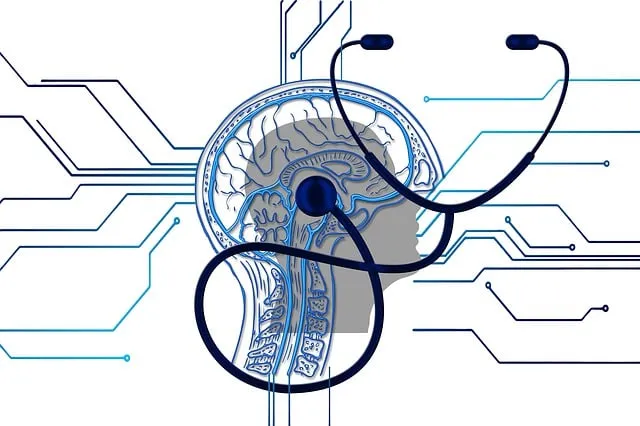Kaiser Cognitive Behavioral Therapy (CBT) for women combines MBSR, bereavement therapy and mindfulness to holistically address gender-specific stressors. This structured, evidence-based approach identifies and changes negative thought patterns, fostering empowerment, resilience, and personal growth. Tailored interventions for various needs, including bipolar disorder management and work stress, empower individuals with effective coping mechanisms and improved mental well-being.
Women’s CBT (Cognitive Behavioral Therapy) offers a powerful tool for personal growth and empowerment. This tailored therapeutic approach, based on the Kaiser Cognitive Behavioral Therapy Model, equips women with essential coping mechanisms to challenge negative thought patterns. By learning resilient strategies and cultivating self-esteem, individuals can transform their lives. The article explores these key aspects, highlighting the long-term benefits of CBT in enabling women to navigate life’s challenges with confidence and self-assurance, fostering true empowerment.
- Understanding Women's CBT: A Tailored Approach
- The Kaiser Cognitive Behavioral Therapy Model
- Identifying and Challenging Negative Thought Patterns
- Building Resilient Coping Strategies
- Enhancing Self-Esteem and Assertiveness
- Long-Term Benefits: Empowerment and Transformation
Understanding Women's CBT: A Tailored Approach

Women’s Cognitive Behavioral Therapy (CBT) is a tailored and empowering approach designed specifically to address the unique challenges women face in their daily lives. This form of therapy goes beyond the traditional CBT models by incorporating elements from Mindfulness-Based Stress Reduction (MBSR) and integrating bereavement therapy sessions to cater to the complex emotional needs of women. It recognizes that women often experience distinct stressors, such as gender-specific issues, relationships challenges, and societal pressures, which can impact their mental health and well-being.
The Kaiser CBT approach for women emphasizes a holistic perspective, focusing on both the mind and body. Through techniques like mindfulness meditation, women learn to manage stress, regulate emotions, and cultivate self-awareness—skills that are invaluable in navigating life’s complexities. This integration of MBSR into CBT enables participants to develop resilience, enhance coping strategies, and foster a deeper sense of empowerment. Moreover, addressing relationships issues within CBT sessions provides a safe space for women to explore and heal interpersonal dynamics, ultimately promoting personal growth and self-discovery.
The Kaiser Cognitive Behavioral Therapy Model

The Kaiser Cognitive Behavioral Therapy (kCBT) Model is a structured and evidence-based approach designed to help individuals manage and overcome various mental health challenges. This model draws on the principles of cognitive behavioral therapy, focusing on identifying and changing negative thought patterns and behaviors that contribute to emotional distress. kCBT offers a comprehensive framework for understanding and addressing complex psychological issues, making it a popular choice in both clinical settings and executive coaching.
One of its key strengths lies in its ability to tailor interventions to specific needs. Whether it’s treating substance abuse through CBT programs or providing grief support groups, this model can be adapted. For instance, CBT coaching for executives focuses on enhancing work-related performance while incorporating strategies to manage stress and improve well-being. By combining scientific principles with practical application, kCBT empowers individuals to take control of their mental health and foster positive change in their lives.
Identifying and Challenging Negative Thought Patterns

Women’s CBT (Kaiser Cognitive Behavioral Therapy) is a powerful tool for empowering individuals by helping them identify and challenge negative thought patterns. This process begins with awareness—recognizing the recurring negative thoughts that can significantly impact mood, behavior, and overall well-being. Once identified, these thoughts are systematically scrutinized to uncover their underlying distortions or irrational beliefs. Cognitive behaviorist psychologists emphasize that many of these negative thought patterns develop over time, often as a result of past experiences, and may not accurately reflect reality.
Through CBT techniques, women can learn to question these automatic negative thoughts and replace them with more realistic and balanced perspectives. This involves developing cognitive flexibility and learning mindfulness-based stress reduction CBT skills. For instance, KBT for bipolar disorder focuses on helping individuals recognize triggers and early warning signs of mood episodes, enabling them to implement coping strategies promptly. By breaking the cycle of negative thought patterns, women can foster a sense of empowerment, leading to positive changes in their lives.
Building Resilient Coping Strategies

Women’s Cognitive Behavioral Therapy (CBT) offers a powerful tool for building resilient coping strategies. By identifying and challenging negative thought patterns, CBT empowers individuals to manage stress, anxiety, and depression more effectively. This process involves learning to distinguish between rational and irrational thoughts, which is crucial in navigating life’s challenges with greater clarity and confidence.
Incorporating mindfulness practices within CBT further enhances these benefits. Mindfulness encourages individuals to stay present, observe their emotions without judgment, and make conscious choices rather than reacting impulsively. This enhanced awareness can significantly improve one’s ability to handle difficult situations, fostering a sense of empowerment and control over one’s emotional well-being. Behavioral Cognitive Therapy (Kaiser CBT) techniques, when tailored for relationships, can also help women develop healthier communication patterns and conflict resolution strategies, thereby strengthening personal connections and overall resilience.
Enhancing Self-Esteem and Assertiveness

Women’s Cognitive Behavioral Therapy (CBT) is a powerful tool to enhance self-esteem and foster assertiveness. By identifying and challenging negative thought patterns, Kaiser CBT helps individuals replace self-doubt with confidence. Through structured techniques, participants learn to reframe their perspectives, promoting a more positive self-image. This process encourages women to embrace their strengths and take charge of their lives, leading to increased assertiveness in both personal and professional settings.
Local KBT therapists often tailor these sessions to address specific challenges, such as managing work stress or coping with bereavement. By integrating CBT into their practice, these professionals empower women to navigate life’s obstacles with resilience. Moreover, participating in bereavement support groups facilitated by CBT practitioners can provide a safe space for healing and personal growth, allowing individuals to process emotions and regain a sense of control.
Long-Term Benefits: Empowerment and Transformation

Women’s Cognitive Behavioral Therapy (CBT) offers long-lasting benefits that extend far beyond the initial treatment period. As women navigate the therapeutic journey, they gain a profound sense of empowerment and personal transformation. This evidence-based approach equips them with valuable tools to challenge negative thought patterns and behaviors, leading to improved mental well-being.
The impact of CBT extends into various aspects of life, including enhanced stress management and better coping strategies. Women may find themselves better equipped to handle everyday challenges, enabling them to make positive changes in their personal and professional lives. Moreover, the benefits of CBT for insomnia and other sleep disorders have been widely recognized, allowing women to achieve restful nights and improved overall health. These long-term advantages highlight the power of CBT as a catalyst for self-discovery and lasting change.
Women’s Cognitive Behavioral Therapy (CBT) offers a powerful tool for personal growth and empowerment. By understanding and challenging negative thought patterns, individuals can develop resilient coping strategies and enhance their self-esteem and assertiveness. The Kaiser CBT model provides a structured framework for this process, enabling women to navigate life’s challenges with greater confidence and transformation. Through dedicated practice, women can achieve long-term benefits, fostering a sense of empowerment that reverberates in all aspects of their lives.






